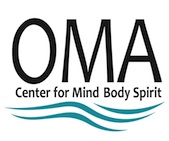Opening Presentations
Gail Hunter, “Striving to Survive”
A Trauma-informed approach to child-raising and educating is one that is based on connection rather than compliance. It is referred to as nonviolent child-raising, based on the philosophy of nonviolence of Gandhi and Martin Luther King: We respect the basic rights and dignity of all human beings, including children. That means their right to an upbringing that is free of oppression, of “power-over” strategies that leave them helpless and afraid. I will discuss:
- Adverse Childhood Experiences (ACEs): significant childhood traumas that result in actual changes in brain development, including the 10 ACE’s
- How to identify the symptoms/characteristics of trauma in children
- How to help children recover from trauma and identify their behavior observationally in the recovery process
- How to identify, build, and nurture resilience in children
- How to create Trauma Informed Support for children and Trauma Informed Compassionate Classrooms
Deneen Marlette Joyner, “Emotional Pain, Trauma and its Impact on the Soul”
Indigenous cultures such as the Aborigine, Native American and African peoples believe that our souls hold a very powerful and purposeful responsibility surrounding our ability to maintain inner balance and communication with our mind, body and spirit. The soul also is a recorder of all life events, becoming a reservoir to hold unresolved emotional pain and unprocessed traumas. It is believed that emotional pain and trauma hold the most space within the soul; that is why healing is imperative!
First Breakout Session (choose one)
Anita Russell, “Positive Self-Image: Are You Up to PAR?”
In this workshop we will examine the importance of positive self-image in youth through the lens of bullying behavior and personal accountability and responsibility (PAR). We will discuss the need for leadership, influence and connection in bullying intervention and prevention. Did you know?
- 70% of teens do not have a positive self-image
- Peers play varying roles in the bully experience
- Bullying is everybody’s business
Susan Amorose, DMQ, RMT, “Ground, Release, Connect with QiGong!”
Dr. Amorose will offer a QiGong visualization and meditation to ground and center, offering a stabilizing tool for practitioners, teachers, therapists and others who work within the populations impacted by trauma or who, themselves, have experienced trauma. She will demonstrate a QiGong form to enhance personal capacity to clear (think detox or release of toxicity), connect and revitalize during periods of stress. Great for any age with adaptations for physical limitations.
Second Breakout Session (choose one)
Deneen Marlette Joyner, “See it, Say it and Know it!”
This workshop will provide insight into how we learned our responses to pain. We will touch on and offer tools for how to be more mindful in acknowledging in real time what hurts—first to ourselves and, when applicable, to others. This noticing and sharing supports the release of emotional pain and allows us to avoid holding onto the trauma or painful energy.
Stephanie Romero, ED.D., “Mindfulness: The Basis for Caring & Connecting”
Many helping professionals, educators, and care providers suffer from stress and burnout. Children and youth often come to us having experienced stress and trauma or without basic social and emotional skills. Mindfulness interventions with both youth and the adults who care for them have shown to improve social and emotional competencies, reduce stress and burnout, and increase health and well-being. This presentation will present what mindfulness is, some research that has been done on mindfulness (particularly in K-12 settings), and help to give participants a chance to try some basic practices. Practices and resources which participants can use in their lives and schools will be provided.

